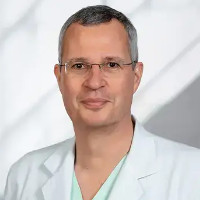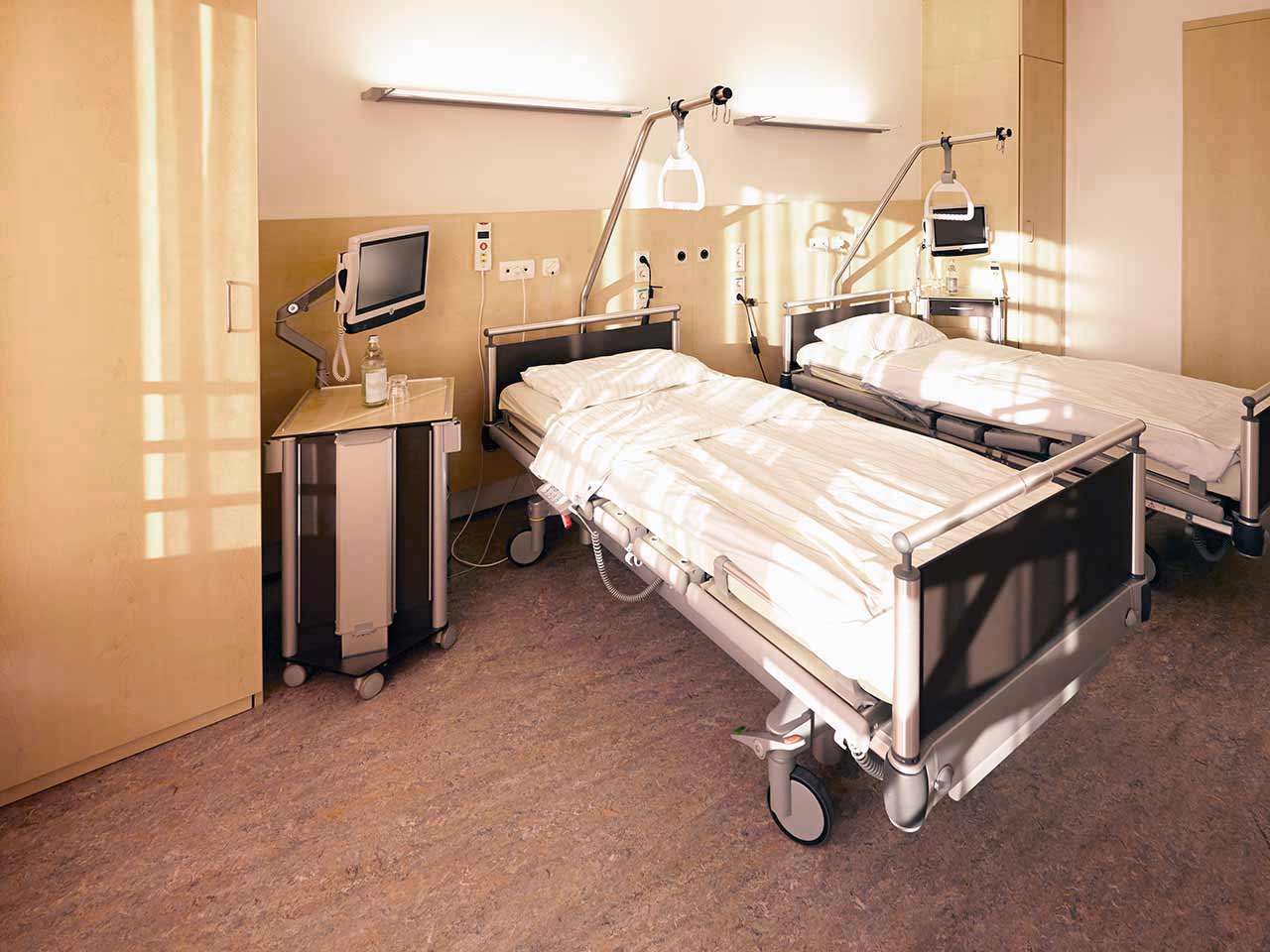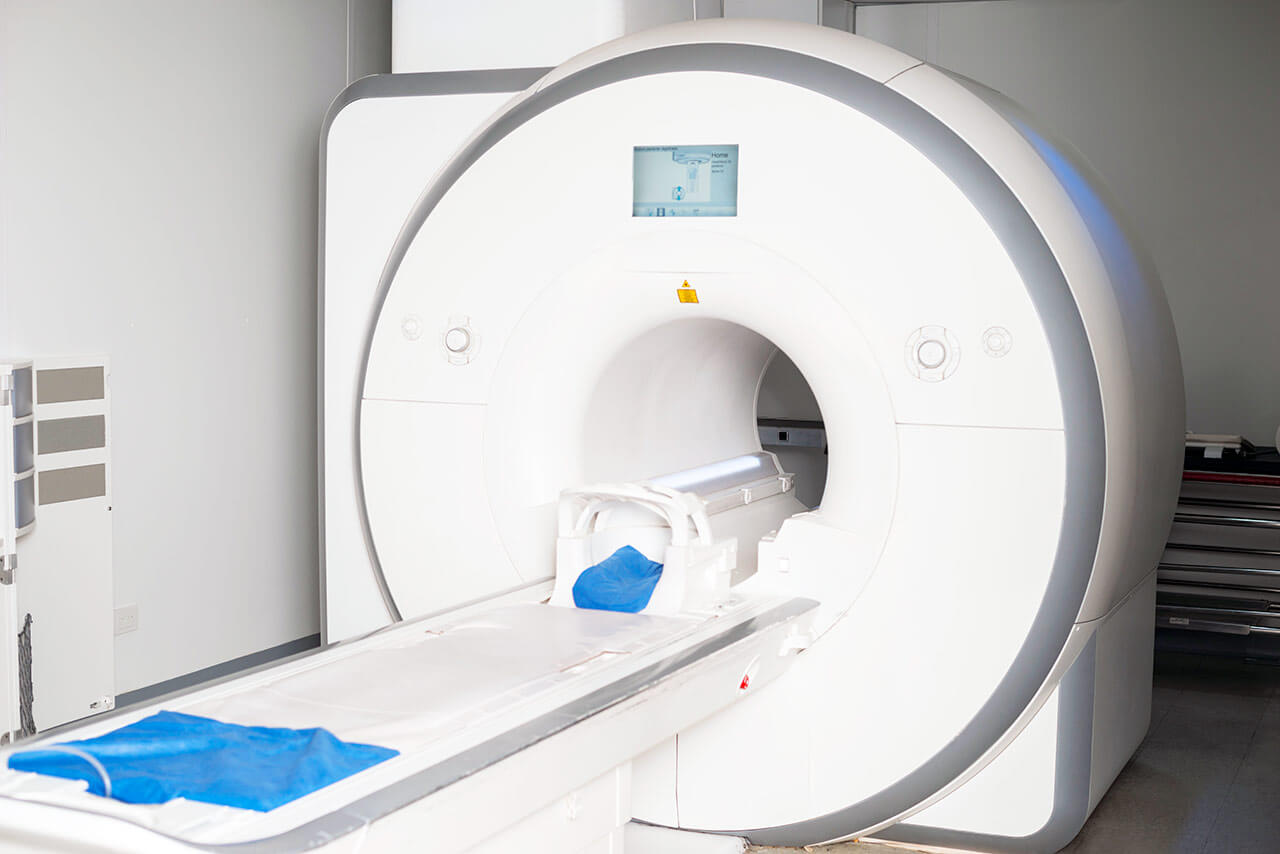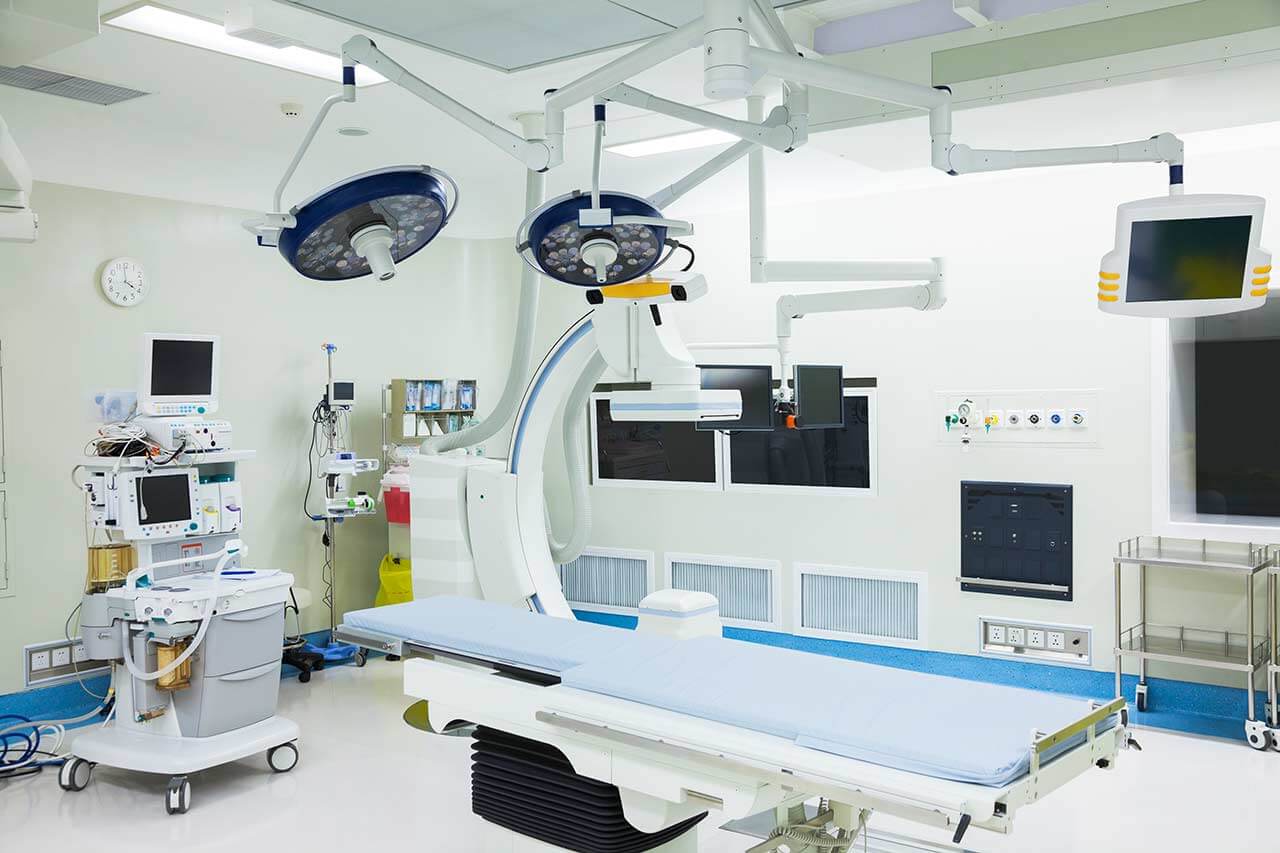
The program includes:
- Initial presentation in the clinic
- clinical history taking
- review of medical records
- physical examination
- laboratory tests:
- complete blood count
- biochemical analysis of blood
- inflammation indicators (CRP, ESR)
- indicators blood coagulation
- TSH-basal
- blood gas analysis
- antinuclear antibodies (ANA)
- rheumatoid factor titers (RF)
- chest x-ray examination
- bronchography
- measurement of arterial blood pressure
- electrocardiogram (ECG)
- echocardiography (ECHO)
- high-resolution computed tomography (HR-CT)
- collected three sputum samples
- pulmonary function test
- bronchoscopy with biopsy
- histological and microbiological examination
- bronchial lavage
- consultation of related specialists
- symptomatic specific treatment
- the cost of essential medicines and materials
- nursing services
- control examinations
- full hospital accommodation
- developing of further guidance
Required documents
- Medical records
- Chest X-ray, MRI/CT scan (if available)
Service
You may also book:
 BookingHealth Price from:
BookingHealth Price from:
About the department
The Department of Pulmonology at the Nuremberg Hospital offers the full range of medical services to patients with lung and respiratory diseases. The department's main clinical focus is the treatment of infectious lung diseases, interstitial lung diseases, bronchial asthma, pulmonary emphysema, chronic obstructive pulmonary disease, and rare lung diseases. The department also specializes in the treatment of lung cancer and is part of the Lung Cancer Center certified by the German Cancer Society. The department has 155 beds for inpatient treatment. The medical facility also houses an Intensive Care Unit with 36 beds. State-of-the-art equipment is available here for the performance of all required therapeutic measures, including extracorporeal membrane oxygenation. The department has one of the largest Bronchoscopy Units in Germany, where modern interventional diagnostic and therapeutic procedures for patients with lung diseases are successfully performed. The department's medical team consists of more than 250 employees, 70 of whom are highly qualified physicians. More than 6,120 inpatients and about 5,000 outpatients are treated in the department every year. The Head Physician of the department is Prof. Dr. med. Joachim Ficker.
The department is a leading medical facility where many modern diagnostic and therapeutic procedures are performed that are not available in every medical center. The Bronchoscopy Unit is a source of pride for the department's specialists. It has the status of being one of the largest and best in all of Germany. Bronchoscopy is an indispensable procedure in the work of the department's pulmonologists and can be used for both diagnostic and therapeutic purposes. The essence of bronchoscopy is as follows: a special endoscopic instrument (bronchoscope) with an integrated video camera and a light source is inserted through the mouth or nose into the respiratory tract under imaging guidance. Depending on the clinical case, bronchoscopy can be performed either under sedation or local anesthesia, and in complex cases, it can also be performed under general anesthesia.
During diagnostic bronchoscopy, the department's pulmonologists have the opportunity to assess the features of the anatomical structure of the human respiratory system and its functions. When performing bronchoscopy, doctors can detect pathological changes in the bronchi, airway stenosis, trauma to the respiratory system, the presence of foreign bodies or neoplasms, etc. As for the treatment, bronchoscopy is an excellent alternative to open surgery when conservative therapy is ineffective. The department's doctors successfully use endoscopic techniques to perform procedures for treating stenosis and pulmonary hemorrhage, implanting special valves to treat severe forms of pulmonary emphysema, conducting argon-plasma coagulation, steam ablation, laser resection of lung neoplasms, removing foreign bodies from the respiratory tract, etc.
An integral part of the department's pulmonologists work is the treatment of lung cancer and pleural mesothelioma. Patients with these oncological diseases undergo treatment at a specialized center certified by the German Cancer Society (DKG). Lung Cancer Center employs highly qualified specialists, such as pulmonologists, thoracic surgeons, oncologists, radiation therapists, radiologists, and others who work hand in hand. The medical team of the specialized center admits more than 1,000 patients with small cell and non-small cell lung cancer every year, boasting unique experience and high professional skills.
Should lung cancer be suspected, the patient will undergo comprehensive diagnostics, including abdominal and chest CT, head CT or MRI, pulmonary function tests, bronchoscopy, heart ultrasound scanning, electrocardiography, biopsy, positron emission tomography, and laboratory tests. The specialists also have the necessary laboratory resources to detect gene mutations in lung tumors, which is important for successful treatment. The highly specialized physicians study the obtained diagnostic data during interdisciplinary boards, after which they elaborate an optimal treatment regimen. An attending physician discusses the upcoming treatment with the patient, providing detailed information about its specifics and expected outcomes. In most cases, surgical resection of a malignant tumor is the basis of treatment. Surgery may be complemented by conservative therapies, such as chemotherapy, radiation therapy, targeted therapy, immunotherapy, and other treatments.
The department has also gained vast clinical experience in the treatment of chronic obstructive pulmonary disease (COPD). The main symptoms of the pathology include coughing (often with sputum), wheezing, and increased fatigue. The therapy is aimed at slowing the development of the pathological processes and improving the quality and duration of the patient's life. In the course of COPD treatment, the department's pulmonologists use drug therapy in combination with physiotherapeutic procedures. Since the main cause of chronic obstructive pulmonary disease is smoking, the decisive factor in treatment success is its cessation. The department offers specially developed smoking cessation programs. The last-line treatment for COPD may include lung volume reduction surgery, home mechanical ventilation, and long-term oxygen therapy.
The department's key clinical focuses include:
- Diagnostics and treatment of lung cancer
- Diagnostics and treatment of pleural mesothelioma
- Diagnostics and treatment of chronic obstructive pulmonary disease
- Diagnostics and treatment of emphysema
- Diagnostics and treatment of bronchial asthma
- Diagnostics and treatment of interstitial lung disease
- Diagnostics and treatment of infectious lung diseases
- Tuberculosis
- Atypical mycobacterial diseases (MOTT, HTM)
- Coronavirus
- Pneumonia
- Flu
- Diagnostics and treatment of rare lung diseases
- Pulmonary lesions due to rheumatic diseases
- Granulomatous lung disease: sarcoidosis and extrinsic allergic alveolitis
- Pulmonary eosinophilia
- Pulmonary alveolar proteinosis
- Lymphangioleiomyomatosis
- Birt-Hogg-Dube syndrome
- Pulmonary Langerhans cell histiocytosis
- Amyloidosis
- Pulmonary hemosiderosis
- IgG4-related lung disease
- Primary ciliary dyskinesia
- Cystic fibrosis
- Swyer-James-MacLeod syndrome
- Allergic bronchopulmonary aspergillosis
- Alpha-1 antitrypsin deficiency
- Pulmonary hypertension
- Diagnostics and treatment of other pulmonary diseases
The department's therapeutic options include:
- Drug therapy
- Endoscopic treatment (bronchoscopy)
- Laser resection of tumors in the organs of the respiratory system
- Argon plasma coagulation
- Steam ablation
- Endoscopic valve placement for severe forms of pulmonary emphysema
- Endoscopic stent implantation
- Endoscopic removal of foreign bodies
- Cryotherapy
- Oxygen therapy
- Mechanical ventilation
- Inhalation therapy
- Physiotherapy
- Other treatment methods
Curriculum vitae
Professional Career
- 17.05.1989 Admission to medical practice.
- 1989 - 1999 Research Fellow in the Department of Internal Medicine I at the University Hospital Erlangen.
- 09.08.1995 Board certification in Internal Medicine (Internist) from the Bavarian State Medical Association.
- 12.12.1996 Board certification in Pulmonology from the Bavarian State Medical Association.
- 05.07.1998 Qualification certification in Somnology from the German Society for Sleep Research and Sleep Medicine (DGSM).
- 07.10.1999 Habilitation in Internal Medicine, Faculty of Medicine, University of Erlangen-Nuremberg.
- 01.11.1999 - 31.05.2003 Senior Physician and Head of the Section of Pulmonology in the Department of Internal Medicine I at the University Hospital Erlangen.
- Since 13.11.1999 Admission to carry out advanced training courses in Pulmonology, Bavarian State Medical Association.
- 31.07.2002 Certificate "Quality Management in Medicine", Bavarian State Medical Association.
- Since 01.06.2003 Head of the Department of Pulmonology at the Nuremberg Hospital.
- 29.09.2003 Authorized to conduct advanced training courses in Internal Medicine, Bavarian State Medical Association.
- 05.10.2005 Qualification in Sleep Medicine, Bavarian State Medical Association.
- 19.12.2005 Extraordinary Professorship at the University of Erlangen-Nuremberg.
- 02.10.2007 Qualification in Tumor Drug Therapy, Bavarian State Medical Association.
- Since 06.06.2009 Head of the Interdisciplinary Lung Cancer Center at the Nuremberg Hospital.
- 22.09.2008 Appointment in the Examination Committee "Sleep Medicine", "Pulmonology", "Internal Medicine with a focus on Pulmonology" of the Bavarian State Medical Association.
- 10.30.2008 European Diploma in Respiratory Medicine for Adults awarded by the European Respiratory Society.
- 15.11.2008 Profile Expert of the Cancer Center, Certification Institute of the German Cancer Society.
- 01.07.2011 - 31.12.2012 Deputy Head of the Comprehensive Cancer Center Erlangen-Nuremberg.
Clinical Focuses
- Treatment of bronchial carcinoma and pleural mesothelioma.
- Treatment of bronchial asthma, chronic bronchitis, and chronic obstructive pulmonary disease (COPD).
- Treatment of interstitial lung disease, such as pulmonary fibrosis, sarcoidosis, and alveolitis.
- Treatment of obstructive sleep apnea, including home mechanical ventilation.
- Treatment of pulmonary hypertension.
- Bronchoscopy, including with laser therapy, stent implantation, and brachytherapy.
Memberships and Positions in Professional Societies and Organizations (selected)
- American Thoracic Society (ATS).
- Atemwegsliga.
- German Respiratory Society (DGP).
- Board Member.
- President of Congress 2012.
- German Society for Sleep Research and Sleep Medicine (DGSM).
- Commission Member of the "Scientific Coordination".
- Head of the DRG Commission (until 2006).
- German Cancer Society (DKG).
- Member of the Working Group on Pulmonary Oncology (POA).
- Specialized Expert of the Cancer Center.
- European Respiratory Society (ERS).
- South German Society for Pulmonology (SDGP).
- Deputy Chairman.
- President of Congress 2010.
- Bavarian Expert Group on Tuberculosis.
- German-Turkish Medical Association Bavaria.
- Member of the Scientific Advisory Board.
- Comprehensive Cancer Center Erlangen-Nuremberg.
- Representative of the Project Team on Lung Cancer.
- German DPLD Network (GOLDnet).
Review Activities
- American Journal of Respiratory and Critical Care Medicine.
- European Respiratory Journal.
- International Archives of Occupational and Environmental Health.
- Pneumologie.
- Somnologie.
- DMW.
- Somnology.
Photo of the doctor: (c) Klinikum Nürnberg
About hospital
According to the reputable Focus magazine, the Nuremberg Hospital ranks among the top German medical facilities!
The hospital is one of the largest, highly specialized medical centers in Europe and positions itself as the maximum care hospital. The healthcare facility is an academic hospital of the Paracelsus Medical University in Nuremberg. It houses 42 departments, institutes, and highly specialized centers focusing on various medical fields. All the hospital's employees work hand in hand for the benefit of their patients. The specialists strive to provide top-class medical care for every patient. Moreover, the medical team always shows a humane attitude and understanding towards the patient's life situation, making every effort to support them during the entire therapeutic process.
The total number of beds in the hospital is 2,233. The medical team consists of more than 8,400 employees, including many world-famous doctors and professors who had their clinical training at the best medical facilities in Germany, other European countries, and the USA. The hospital admits more than 100,000 inpatients and more than 170,000 outpatients annually. The number of patients who come to the hospital steadily increases every year, which is the best confirmation of its high standards and outstanding treatment results.
The cornerstone of successful clinical practice is state-of-the-art technical infrastructure. The hospital offers its patients innovative technologies such as the Da Vinci surgical system, devices for stereotactic procedures, intraoperative radiation therapy, angiography, PET CT devices, high-intensity focused ultrasound, 64-slice CT scanners, and other advanced medical devices. The combination of cutting-edge technical facilities and the high competence of the physicians allows for the provision of effective treatment even in the most complex cases.
The Nuremberg Hospital is undoubtedly one of Germany's leading medical facilities, where patients benefit from modern infrastructure, precise diagnostics, effective treatment, and responsive care.
Photo: (с) depositphotos
Accommodation in hospital
Patients rooms
The patients at the Nuremberg Hospital live in comfortable single and double rooms. Each patient room is equipped with an ensuite bathroom with a shower and a toilet. Standard rooms include an automatically adjustable bed, a bedside table, a wardrobe for storing clothes, a table and chairs for receiving visitors, a TV, and a radio. The hospital also offers Wi-Fi.
If desired, patients can live in enhanced-comfort rooms. Such patient rooms are more spacious, and their furnishings correspond to the level of an upscale hotel.
Meals and Menus
The patients at the hospital are offered tasty and balanced meals three times a day: breakfast, lunch, and dinner. The patients have a daily choice of three dishes for lunch and dinner, while breakfast is served as a buffet.
If, for some reason, you do not eat all foods, you will be offered an individual menu. Please inform the medical staff about your food preferences prior to treatment.
Further details
Standard rooms include:
Accompanying person
Your accompanying person may stay with you in your patient room or at the hotel of your choice during the inpatient program.
Hotel
You may stay at the hotel of your choice during the outpatient program. Our managers will support you for selecting the best option.





